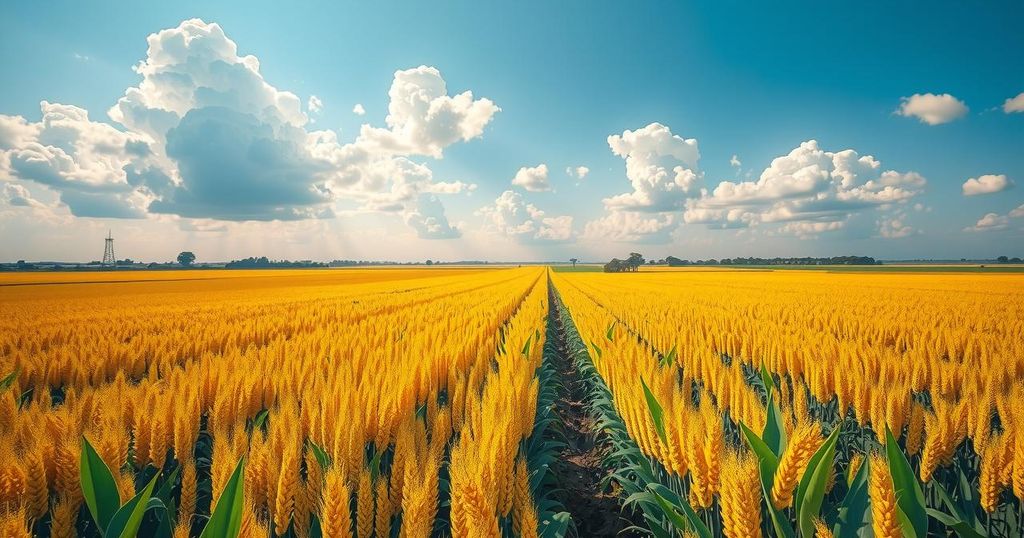Farmers in Madagascar are confronting escalating climate challenges, with many not adapting their farming practices despite worsening conditions. Financial limitations and the prevalence of extreme weather events hinder their ability to make necessary changes. Innovative methods for improving food security exist, but urgent support is needed for these farmers to combat climate change effectively.
A recent study highlights the challenges faced by farmers in Northeast Madagascar, where alterations in temperature and rainfall are exacerbating agricultural difficulties. Interviews from villages such as Sarahandrano and Mandena indicate that while farmers are aware of the worsening conditions, few are adjusting their practices to cope with these changes. The primary crops, including vanilla, rice, bananas, and coffee, are often cultivated using minimal tools and reliant on local water sources for irrigation.
The study’s findings show that approximately seventy-five percent of respondents have noticed their water supplies diminishing or have reduced their farming efforts due to extreme weather. Additionally, an increase in pests and health issues, notably malaria and diarrhea, was reported. This developing situation has led only one-fifth of farmers to implement adaptive strategies, such as utilizing fertilizers or adjusting their planting schedules.
Research indicates that demographic factors contribute to adaptability; men and those with durable goods, like generators, are more likely to modify their methods. The financial constraints faced by farmers are significant, as a substantial portion of Madagascar’s population lives below the poverty line, making alternative farming practices less accessible. Programs aimed at supporting these farmers could alleviate some costs associated with adaptation.
Innovative practices, including integrating fruit trees into existing fields or using flooded rice paddies for fish farming, can enhance food security and address pest issues. Meanwhile, the threat of cyclones and tropical storms causes additional destruction, hindering farmers’ capacities to manage crops and access markets.
The broader trends of rising temperatures and decreasing precipitation over the past fifty years pose a significant threat not only to Madagascar but to small-scale farmers globally, who contribute notably to food supply chains. The researchers plan to extend their survey across 34 villages to see if similar patterns persist and to assess the effects of farmers’ adaptations to climate change.
As emphasized by the researchers, farmers must cultivate greater flexibility and resourcefulness in response to climate change. However, this is challenging when their livelihoods directly impact their families’ food security.
The study reveals that Madagascar’s farmers are increasingly challenged by climate change, manifested in declining water resources and rising pest populations. Although many farmers anticipate worsening conditions, adaptation remains minimal due to financial constraints. Innovative farming practices and supportive policies may offer solutions, but immediate action is necessary to ensure food security and resilience against climate impacts.
Original Source: today.duke.edu




